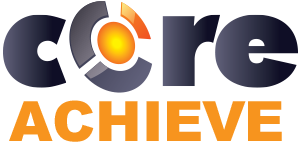Creating Engaging Learning Experiences with an LMS
August, 16 2023
Other posts:
Enhancing Team Dynamics for Effective Group Decision-Making with LMS Integration
Organizations increasingly rely on collaborative efforts to solve complex problems, innovate, and adapt to change, but how do we ensure that collaboration is happening.
Maximizing Small Business Potential with Training Technology
Training technologies can push small businesses ahead of their competitors, but what are the factors that go into choosing the right technology?
Unlocking Employee Potential: The Transformative Benefits of an Interactive Learning Management System (LMS)
Interactive training allows for unlocking employee potential, but how is it done?
Building a Robust Sales Pipeline with Training
Every organization wants a streamlined sales pipeline, but building one requires a series of interlocking activities with one of the most important being training.
Strategies for Adapting In-Person Training to Online Platforms
Online training is one of the most flexible ways of delivering training across organizations, but how do you even begin to adapt in-person training into online?
The training experience has constantly evolved over time, from cumbersome packets
The learning experience for organizations has changed dramatically over the recent past. From clumsy information packets to faded VHS tapes, organizations, educational institutions, and individuals are all striving to keep up with the latest trends and technologies to provide effective and engaging learning experiences. This is where a Learning Management System (LMS) steps in, a powerful platform that transforms the way organizations learn and train.
Accessibility and Convenience
One of the biggest differences between an LMS platform versus older training methods is that the content can be delivered anywhere. Training is no longer confined to a small backroom or specific time slots. With an LMS, they can access course content, videos, quizzes, and assignments from their laptops, tablets, or even smartphones. This level of accessibility ensures that learning becomes a seamless part of their daily work life, promoting a continuous learning culture.
Personalization for Engagement
Training large groups of people typically doesn’t allow for personalized learning experience, but an LMS, because of its ability to sort and assign users, empowers trainers to tailor learning experiences to individual needs. Through assessments and learner profiles, the system (or trainers) can recommend personalized learning paths, ensuring that learners engage with content that's relevant to their goals and skill levels. This level of personalization not only keeps learners engaged but makes training more efficient by focusing learners on what matters most to them.
Interactive and Engaging Content
Lectures and slide shows are often unengaging, but common, hurdles for learners to trudge through. However, an LMS can avoid these boring pitfalls by allowing the creation of dynamic, interactive content that captures learners' attention and keeps them engaged. Incorporating videos, quizzes, gamified elements, and simulations can turn the learning process into an enjoyable and immersive experience. Using engaging content not only makes the learning experience more enjoyable but also forms better memories and helps remember more.
Collaboration and Peer Learning
Teambuilding is an essential part of a well-running organization, and those skills can start to be developed through collaborative learning. An LMS facilitates collaboration among learners by offering discussion boards and forums. Learners can share ideas, discuss concepts, and learn from each other's perspectives. Even if the lessons aren’t on teamwork, learners can be more comfortable in collaboration via an LMS’ social abilities.
Real-Time Progress Tracking
Traditional learning methods often lack real-time feedback on progress as it is passed up and down; whereas an LMS can offer feedback as soon as a question is answered, or course completed. Learners can track their progress, identify areas where they need improvement, and celebrate milestones. Trainers, who also get detailed progress tracking, can analyze data to fine-tune their strategies and provide targeted support where needed, maximizing their training for efficiency and effectiveness.
Continuous Learning and Microlearning
Continuous learning refers to a growing trend of training needing to be constantly updated and retaken. An LMS can support this by delivering microlearning modules—bite-sized chunks of content that learners can consume quickly. This approach fits seamlessly into busy schedules and ensures that learners can engage with learning materials without feeling overwhelmed while leading to higher retention rates.
Quick Updates and Seamless Revisions
Touched on above, new information is constantly coming out and skills need updated training to reflect these advancements. The computerized nature of an LMS platform allows trainers to quickly push updates to reflect the latest developments, ensuring that learners receive accurate and up-to-date information. This agility in content management keeps the learning experience fresh and relevant, keeping an organization who applies this ahead.
An LMS is the way to deliver a complete learning experience. Its ability to provide accessibility, personalization, interactivity, collaboration, progress tracking, continuous learning, and seamless updates makes it an indispensable tool in the modern training landscape. As technology continues to advance, the learning experience will continue to evolve, and the role of the LMS in shaping that experience will become even more pronounced. By embracing these strategies, the experience of training will be more effective and efficient (not to mention easier) for everyone involved.
Get started with CoreAchieve today for free.
Photo by Alejandro Escamilla on Unsplash

Leave comment: